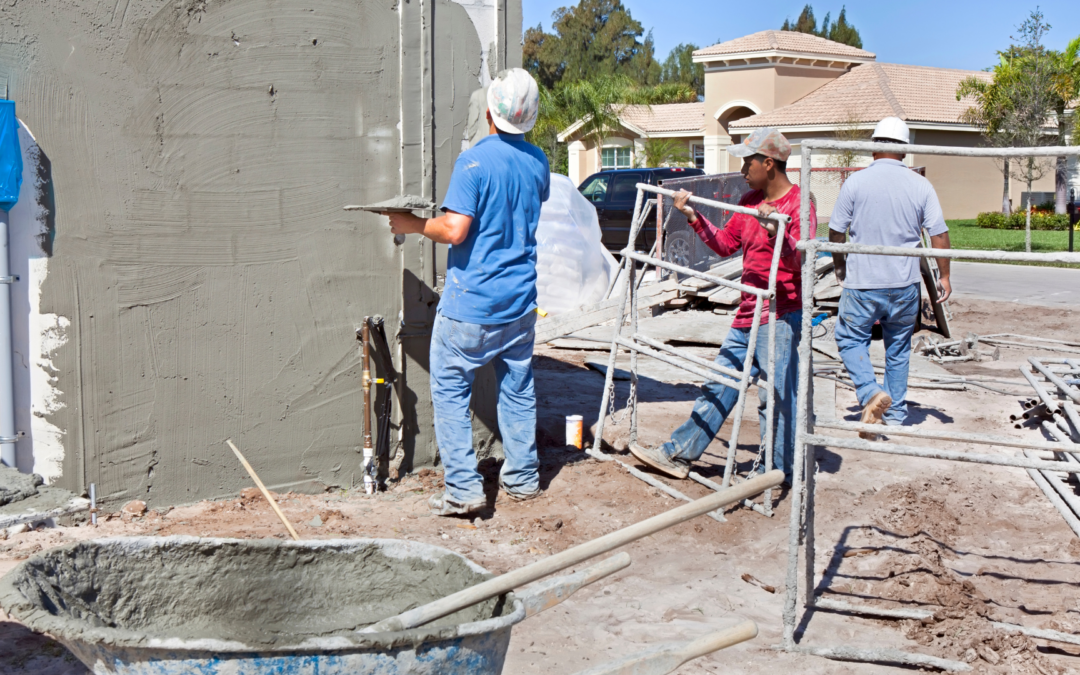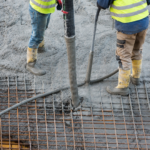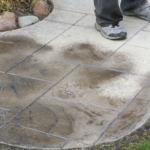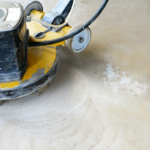Concrete is the backbone of modern residential construction. It’s durable, versatile, and essential for building strong, lasting structures. However, not all concrete work is created equal. To ensure your home stands the test of time, you need to choose the right residential concrete contractor.
This guide will walk you through everything you need to know about hiring a professional concrete contractor, from understanding their role to recognizing the signs of quality workmanship.
What Do Residential Concrete Contractors Do?
The Role of a Concrete Contractor
Residential concrete contractors specialize in constructing and repairing concrete structures for homes. This includes driveways, walkways, patios, foundations, retaining walls, and more. Their role is crucial for ensuring that these structures are built to last, safe, and aesthetically pleasing.
Skills and Expertise
A skilled concrete contractor possesses a deep understanding of materials, techniques, and engineering principles. They’re adept at mixing and pouring concrete, creating molds and frameworks, and finishing surfaces to perfection. Their expertise ensures that the final product is not only functional but also visually appealing.
Types of Projects
Concrete contractors handle a variety of residential projects. From simple repairs to complex installations, they bring their expertise to every task. Common projects include installing new driveways, creating stamped concrete patios, and constructing durable foundations for new homes.
Why Hire a Professional Concrete Contractor?
Quality and Durability
One of the main reasons to hire a professional is the assurance of quality and durability. Professional contractors use high-quality materials and adhere to industry standards, ensuring that your concrete structures can withstand various elements and last for years.
Time and Cost Efficiency
Hiring a professional can save you both time and money in the long run. Experienced contractors work efficiently, reducing the time needed to complete the project. Additionally, their expertise minimizes the risk of costly mistakes, ensuring that the job is done right the first time.
Safety Considerations
Concrete work involves heavy materials and potentially hazardous equipment. Professional contractors are trained in safety protocols, reducing the risk of accidents and injuries on the job site. Their knowledge and experience ensure that every project is completed safely.
How to Choose the Right Residential Concrete Contractor
Research and Recommendations
Start by researching local contractors and asking for recommendations from friends, family, or neighbors. Word-of-mouth referrals can provide valuable insights into a contractor’s reliability and quality of work.
Check Credentials and Experience
Ensure that the contractor is licensed, insured, and bonded. This protects you in case of accidents or damages during the project. Additionally, check their experience and portfolio of completed projects to gauge their expertise and style.
Get Multiple Quotes
Obtain quotes from several contractors to compare prices and services. Be wary of significantly low bids, as they may indicate subpar materials or workmanship. A detailed quote should include a breakdown of costs, project timeline, and payment schedule.
The Importance of a Contract
Detailed Agreements
A written contract is essential for outlining the scope of work, materials to be used, project timeline, and payment terms. It serves as a legal agreement between you and the contractor, ensuring that both parties are clear on expectations and responsibilities.
Project Milestones
Include specific milestones in the contract to track progress and ensure timely completion. This helps manage the project’s timeline and provides opportunities to address any issues that may arise along the way.
Warranty and Guarantees
A reputable contractor should offer a warranty on their work. This provides peace of mind, knowing that any defects or issues will be addressed promptly. Ensure that the warranty details, including coverage period and conditions, are clearly stated in the contract.
Common Residential Concrete Projects
Driveways
Concrete driveways are popular for their durability and low maintenance. They can be customized with various finishes and patterns to enhance curb appeal. A professional contractor ensures proper grading and drainage to prevent future issues.
Patios and Walkways
Concrete patios and walkways create functional and attractive outdoor spaces. Contractors can install stamped or stained concrete to mimic the look of natural stone or brick, adding aesthetic value to your property.
Foundations
The foundation is the most critical component of any home. A skilled contractor ensures that the foundation is level, stable, and capable of supporting the structure’s weight. Properly constructed foundations prevent settling and structural damage over time.
Understanding Concrete Mixes
Types of Concrete
Various types of concrete mixes are used for different applications. For example, high-strength concrete is ideal for foundations, while decorative concrete mixes are used for patios and walkways. Understanding the types of concrete helps you make informed decisions for your project.
Additives and Enhancements
Additives such as fibers, accelerators, and retarders can enhance concrete’s properties. Contractors use these additives to improve strength, durability, and workability. Discussing these options with your contractor can help achieve the desired results.
Curing Process
Proper curing is essential for concrete to reach its full strength and durability. The curing process involves maintaining adequate moisture and temperature conditions for a specified period. A professional contractor ensures that the concrete is cured correctly, preventing cracks and other issues.
Challenges in Residential Concrete Work
Weather Conditions
Weather plays a significant role in the success of concrete projects. Extreme temperatures, rain, and humidity can affect the curing process and overall quality of the concrete. Professional contractors plan and execute projects considering these factors to ensure optimal results.
Soil Conditions
The type and condition of the soil can impact the stability of concrete structures. Contractors assess the soil and may recommend additional measures, such as soil stabilization or the use of a thicker base, to ensure a solid foundation.
Permits and Regulations
Certain concrete projects may require permits and adherence to local building codes. Experienced contractors are familiar with these regulations and ensure that all necessary permits are obtained before starting the project.
Trends in Residential Concrete Design
Decorative Finishes
Decorative concrete finishes, such as stamped, stained, and polished concrete, are becoming increasingly popular. These finishes offer endless design possibilities, allowing homeowners to customize their outdoor spaces with unique patterns and colors.
Outdoor Living Spaces
Concrete is a versatile material for creating functional and stylish outdoor living spaces. Patios, fire pits, and outdoor kitchens made from concrete provide durability and low maintenance, enhancing the overall appeal of your property.
Minimalist Design
Minimalist design trends emphasize clean lines and simplicity. Smooth concrete surfaces with subtle textures and neutral colors align with this aesthetic, creating a modern and sophisticated look for residential spaces.
Reach Out to Greensboro Concrete Services Today
Residential concrete work requires skill, expertise, and attention to detail. By choosing a reputable contractor like Greensboro Concrete Services, you can ensure that your project is completed with the highest level of quality and professionalism. From smooth finishes to decorative touches, our team has the experience and knowledge to bring your vision to life.
Contact us today for all your residential concrete needs and let us help you create a beautiful and durable space for your home.






